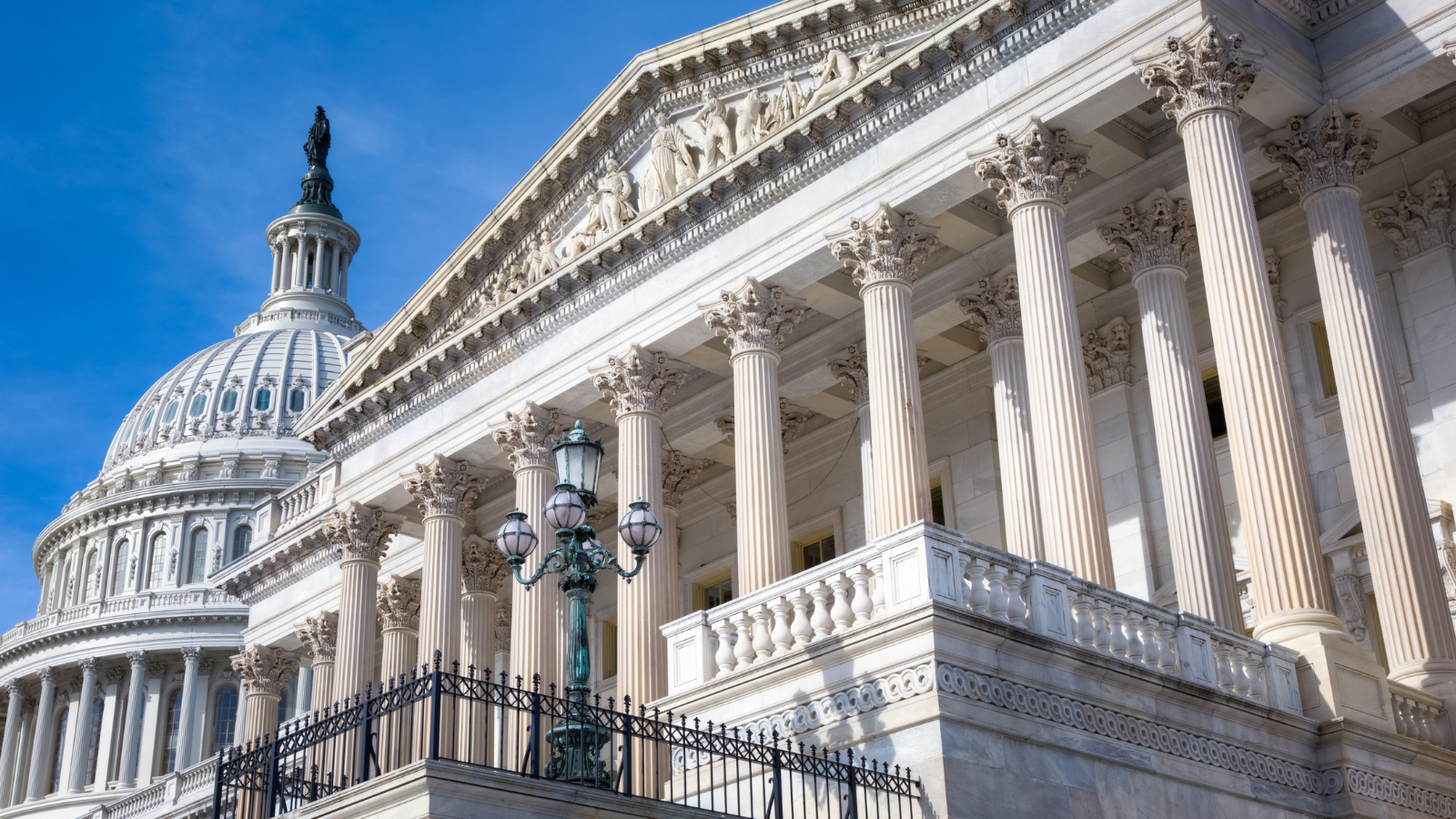Senator Elizabeth Warren takes a stand against Big Tech
🤖 Senator Elizabeth Warren takes a stand against Big Tech.
She made her case in a six-page letter to the United States’ top antitrust enforcers, including Lina Khan, chair of the Federal Trade Commission, and Jonathan Kanter, who heads up the antitrust division of the Justice Department. In the letter, Senator Warren urged the enforcers to keep their eye on the Big Tech market - made up of Google, Amazon, and Apple - as they continue their individual expansions into the automotive industry. She highlighted the possible risks of Big Tech having access to individual dashboards and vehicles.
The Senate passed a $105 billion bipartisan bill to improve air travel safety and customer service.
In a bid to further pressure Russia over its war in Ukraine, the U.S. Senate has unanimously passed a bill to prohibit Russian uranium imports.
The House Freedom Caucus is shaking things up with their demands for funding the reconstruction of Baltimore's Francis Scott Key Bridge.
Senator Bernie Sanders introduced legislation to cut the standard U.S. workweek from 40 to 32 hours over four years, without reducing pay.
Senator Rand Paul (R-Ky.) is opposing a unanimous passing of a bill, requiring Democrats to spend more time on it before a roll-call vote.
Former President Donald Trump expressed concerns about the proposed ban on Chinese-owned social media app TikTok in the United States during an interview on CNBC's "Squawk Box" on Monday.
The U.S. House of Representatives is speeding up a vote next week on a bill that would force China's ByteDance to sell off TikTok within six months or face a U.S. ban.
The US House of Representatives passed a $467.5 billion spending package to avoid a government shutdown, covering various sectors like agriculture and veterans' affairs.
Jalon Hall, a Black Deaf woman, initially thought she was being scammed when offered a job moderating YouTube videos in 2020.
A bipartisan group of U.S. lawmakers has introduced legislation to push China's ByteDance, owner of TikTok, to divest the app within six months or face a U.S. ban due to national security concerns over its Chinese ownership.
Congress appears ready to reverse a safety regulation that has hindered younger drivers from participating in a trucking program, as outlined in a bipartisan budget bill.
The FTC is investigating Big Tech's investments in cloud services for smaller AI companies like OpenAI and Anthropic.
Sen. Alex Padilla, along with nine other Senate Democrats, is expressing concern about the direction of bipartisan border security negotiations, which are crucial for passing an emergency foreign aid package.
A new bill in response to the White House's executive order on AI has been introduced, aiming to provide Congress with input on the federal government's implementation of AI systems.
House Republicans are pressing the IRS for answers regarding the delay in processing new claims for the pandemic-era small business tax credit known as the employee retention credit (ERC).
The United States is facing the possibility of a government shutdown as Congress has until midnight on Saturday to pass a new budget.
House Speaker Kevin McCarthy has rejected a Senate stopgap funding bill, thereby escalating the risk of a fourth partial U.S. government shutdown in a decade.
Transportation Secretary Pete Buttigieg has issued a warning about potential airline disruptions if Congress fails to pass funding bills or reach a short-term resolution before the looming government shutdown deadline.
If the federal government shuts down on October 1, it will disrupt various services, impact workers, and cause political turmoil as House Republicans demand deep cuts in federal spending.
The House of Representatives has passed H.R. 1435, the Preserving Choice in Vehicle Purchases Act, which aims to prevent the EPA from allowing California to limit the sale or use of new internal combustion engine vehicles.
Transportation Secretary Pete Buttigieg has been actively promoting the Biden administration's infrastructure initiatives, emphasizing the progress made on various projects, including the Infrastructure Investment and Jobs Act (IIJA).
Congress is taking action to address the critical shortage of pharmaceutical drugs in the U.S., which has been exacerbated by the COVID-19 pandemic.
A bipartisan group of senators has introduced a bill aimed at strengthening the pharmaceutical supply chain by increasing drug manufacturing in the U.S. and allied countries.
Advocates for the self-driving vehicle industry have urged Congress to take action and regulate autonomous cars and trucks.
Alphabet Inc.'s Waymo, the autonomous driving company backed by Google, has decided to shift its focus to its ride-hailing service and delay the expansion of Waymo Via, its autonomous commercial trucking arm.
The Owner-Operator Independent Drivers Association (OOIDA) has expressed opposition to the PRO Act, stating that it would create confusion and jeopardize the established business model in the trucking industry.
The recent legislation proposed by Senators Tammy Baldwin and Roger Marshall called the "Reliable Rail Service Act," has raised concerns reminiscent of the 2008 financial crisis.
A congressional report reveals that the United States is grappling with critical medication shortages, prompting bipartisan senators to investigate the potential national security implications.
The Biden administration's Inflation Reduction Act (IRA), aimed at promoting clean energy technologies and bolstering the US clean energy industry, has had a significant impact on the lithium-ion battery (LiB) value chain for electric vehicles and energy storage.































The Republican-led U.S. House of Representatives passed the Israel Security Assistance Support Act on Thursday, pushing President Biden to send weapons to Israel more quickly.